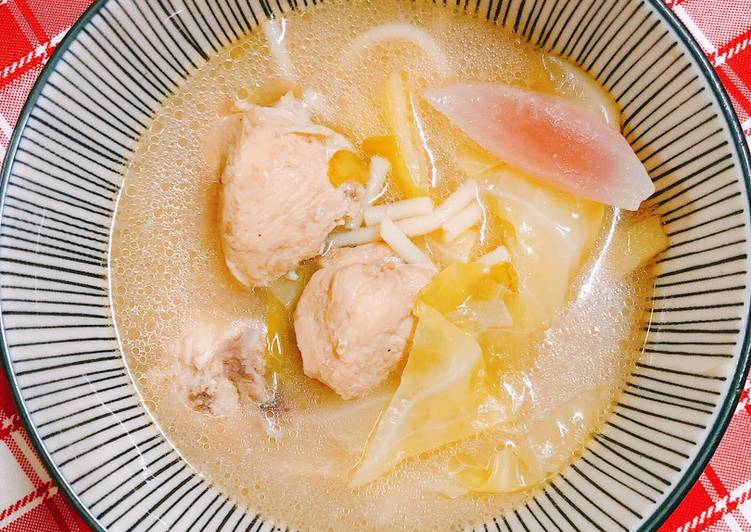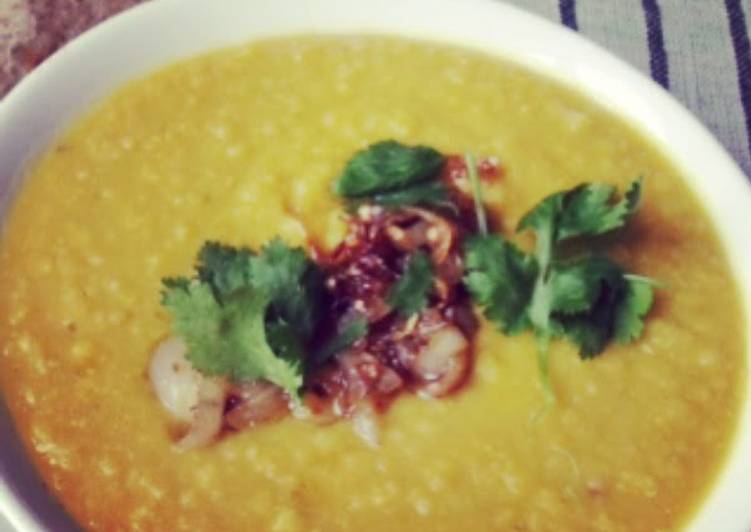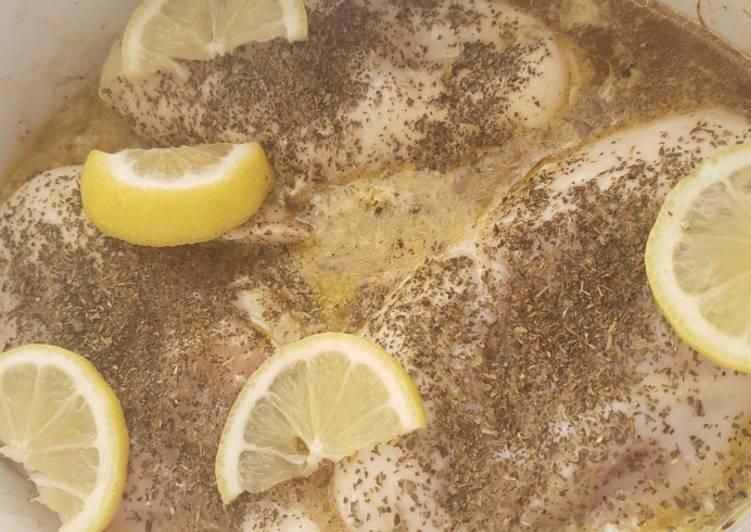
Hey everyone, it’s Drew, welcome to our recipe site. Today, I will show you a way to make a special dish, sinampalukang manok with leftover pasta noodles. One of my favorites. This time, I am going to make it a bit unique. This will be really delicious.
Sinampalukang Manok with Leftover Pasta Noodles is one of the most favored of recent trending foods in the world. It’s easy, it is quick, it tastes delicious. It’s enjoyed by millions daily. They’re nice and they look wonderful. Sinampalukang Manok with Leftover Pasta Noodles is something that I’ve loved my whole life.
Great recipe for Sinampalukang Manok with Leftover Pasta Noodles. This is a sour kind of soup with a twist! ☺️ I hd leftover pasta and decided to mix it in in this recipe. See great recipes for Sinampalukang Manok with Leftover Pasta Noodles too!
To begin with this recipe, we must first prepare a few components. You can cook sinampalukang manok with leftover pasta noodles using 14 ingredients and 4 steps. Here is how you can achieve it.
The ingredients needed to make Sinampalukang Manok with Leftover Pasta Noodles:
- Take 1 whole chicken (chopped to the number of pieces you prefer)
- Take 5 pieces chopped garlic
- Make ready 1 medium red onion
- Take 1 thumb of ginger
- Make ready 1/4 of a green cabbage head (separate the hard parts and the soft parts)
- Make ready 3 stalks chopped celery (save the leaves)
- Take 3 long green chilis
- Get 1 pack Sinigang sa Gabi Tamarind soup base
- Take 100 grams cooked noodles (I used spaghetti for this recipe)
- Get While peppercorns to season
- Make ready to taste Fish sauce
- Get Neutral oil to fry in
- Take Water for the soup (eyeball this because every pan is different)
- Get Lemon Salt (optional)
Hope you enjoy! 🌿 An easy Chicken Sinigang recipe made lightly rich and creamy with shavings of taro (gabi). It's sour, savory and loaded with vegetables. If you're looking for a great alternative to Pork Sinigang, then give this a try. Sinampalukang manok, in need of definition, is chicken cooked ala-sinigang but uses young tamarind leaves along with the tamarind pulp to sour the broth.
Steps to make Sinampalukang Manok with Leftover Pasta Noodles:
- On medium heat, add oil to your pan. Once oil is hot and ready, add garlic, onion, and ginger and sauté for a few seconds. Add the chicken in and sauté for at least 10 minutes to release it's juices.
- Once the chicken is sautéed, turn the heat on to low and add the water in until all the chicken is submerged in the water. Make your Sinigang sa Gabi Tamarind Soup Base, long green chilis, celery (for the leaves, add it in but make sure that you tie them all together or use a cheesecloth to bundle them together as you’re going to take them out when the dish is fully cooked) and hard cabbage parts in and give it a quick stir.
- Leave the pot on low until the soup comes to a full boil. Once the soup is on full boil, add peppercorns and fish sauce to taste — adjust it to your liking. If you have lemon salt, use it as well to REALLY add that sour kick to your dish. Remember to add the seasoning gradually, tasting as you go. Add the rest of the cabbage here.
- For the final step, add your leftover pasta noodles in, and give it a quick stir. Take out the celery leaves, and serve! Enjoy 😉
Although the vegetable component of true sinampalukan is mostly the tamarind leaves only, feel free to make it more substantial and add eggplant, kangkong or the other types of vegetable common in sinigang. Sinampalukang Manok is a chicken soup dish with a sour broth. It is has similarities to Sinigang, which happens to be one of the most popular Filipino dish. I like Sinampalukang Manok because it is simple and delicious. This dish has minimal ingredients yet it is very flavorful.
So that is going to wrap this up for this exceptional food sinampalukang manok with leftover pasta noodles recipe. Thank you very much for reading. I am sure you can make this at home. There’s gonna be more interesting food in home recipes coming up. Remember to bookmark this page on your browser, and share it to your loved ones, colleague and friends. Thank you for reading. Go on get cooking!

